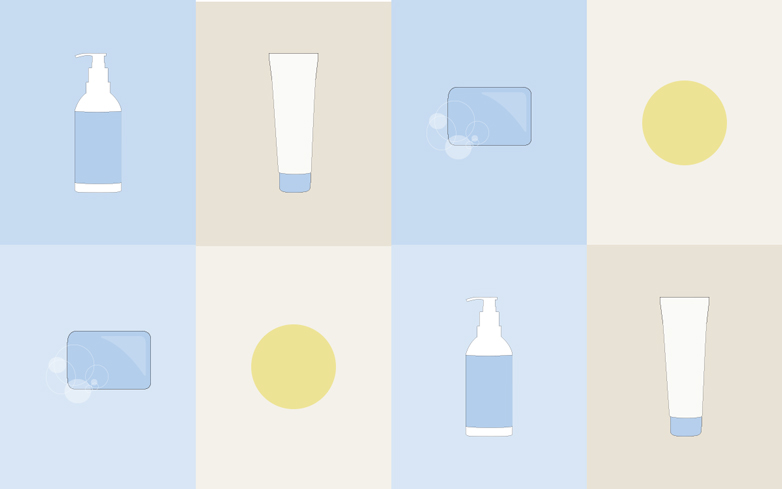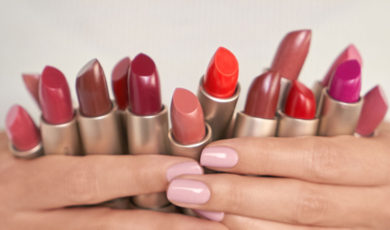Fact vs. Fiction: All About Skin Immunity

If only skincare was as easy as slapping on a moisturizer and calling it a day. The body’s largest organ is anything but simple though. It’s actually highly complex system that protects us in all kinds of ways: temperature regulation, moisture retention, vitamin production, and yes, even our overall immunity. Speaking of, there are a number of misconceptions about the skin immune system out there, so in celebration of our new skin-strengthening skincare collection, we’re dedicating this post to some serious myth busting.

The Myth: The Best Way to Get Vitamin D is Via Unprotected Sun Exposure
Vitamin D is a vital nutrient that boosts our body’s immune system and even strengthens our bones. There are a few primary ways we can get it: through the foods we consume, the vitamin supplements we take, and from hanging out in the sun. Long story short, when the sun hits your skin it interacts with a protein called 7-dehydrocholesterol and converts it into vitamin D3, the active form of vitamin D.
“Unfortunately, too many people think that using sunscreen and other forms of sun protection leads to vitamin D deficiency, and that the best way to obtain enough vitamin D is through unprotected sun exposure. This is definitely a myth,” says Dr. Nina Desai, a board-certified medical and cosmetic dermatologist in greater Los Angeles. “All SPF still allows for a small percentage of UVB rays to hit the skin, and it only takes a small amount of UVB to trigger the body’s production of vitamin D.”
Also, only a limited amount of vitamin D can be produced at one time and that happens quite quickly, so more time in the sun doesn’t translate to a stockpile of vitamin D.
The Truth: Going without sunscreen increases your chances of developing skin cancer and expedites the aging process. So keep up the SPF usage, and if your vitamin D levels are low, consult with your doctor about supplementation.
The Myth: Skin Only Serves as a Physical Barrier
Like the last myth, this misconception is so widespread because it’s a half-truth. Most of us are taught in health class that our skin serves one primary function, which is to protect our insides from the outside stuff. That’s true, but there’s way more to this story.
“The skin is a massive immune organ. It houses more T-cells than the blood, and it is the first responder to make antibodies to pathogens,” says Dr. Jessica Wright, a medical doctor and founder of Rejuvenate Austin. She adds that the skin’s microbiome is home to lots of good bacteria which are absolutely essential to our skin’s health and overall wellbeing.
“The good bacteria on our skin have roles we are aware of, and some we aren’t fully understanding. Interestingly, many skin conditions, including atopic dermatitis [also known as eczema], have been linked to not enough bacterial exposure as a baby,” says Dr. Wright.
The Truth: Our skin is a super complex system that plays a key role in our body’s overall immunity. It’s more than just a blanket over our insides, and requires gentle, consistent care! Our newly reformulated SKINLONGEVITY Collection helps strengthen your skin’s barrier to help prevent damage.

The Myth: The More You Clean Your Skin, the Better
Speaking of bacteria, let’s talk about a very topical subject: hand sanitizers, hand washing, and general body washing. To preface, cleanliness is a very nuanced issue, and obviously we need to be more cautious than ever when it comes keeping sanitary. That said, it’s possible to overdo it to the detriment of our skin’s health and overall immunity.
“Most folks think that hand sanitizer just kills bad bacteria, but it kills good bacteria, as well. It also dries your epidermis out, which is your barrier from bacteria and viruses,” notes Dr. Wright. “In reality, washing your hands with soap and water followed by a moisturizer is much better when possible. There are situations [that] hand sanitizer necessary, but let’s just not make it a habit when you can wash your hands.”
Dr. Desai adds that while hand sanitizers that contain at least 60% alcohol can kill viruses and certain bacteria, there are certain germs that hand sanitizers do not kill. Hand sanitizers also may not get rid of pesticides and heavy metals like lead from our skin. She says, “Hand washing reduces the amounts of all types of germs, pesticides, and metals from our hands, keeping our skin and our hands cleaner.” This “overdoing it” idea also applies to washing your face and even showering.
The Truth: Cleaning is important, but overdoing it can dry out your skin, which can lead to oil and bacteria imbalances and cause all sorts of issues. Stick to washing with soap and water when possible and try not to shower more than once per day or wash your face more than twice daily.
The Myth: Certain Ingredients Will “Thin Out” Your Skin
The more you learn about our skin’s complex ecosystem, the quicker you’ll realize just how robust it is. Despite common belief, regularly exfoliating your skin with ingredients such as alpha and beta hydroxy acids, enzymes and even retinol will not cause your skin to become thinner or weaker.
“Our skin’s cycle involves skin cells forming in the deepest layer of the epidermis and then working their way up to the top layer, eventually flaking away. As we age our skin cycle slows down and dead cells accumulate on the surface of our skin causing a dull appearance and an increase in fine lines and wrinkles. Bacteria can also become trapped under these dead cells causing breakouts,” says Dr. Desai.
The Truth: Exfoliating ingredients help slough off the dead cells for a brighter, clearer complexion. Some ingredients, such as retinoids, even support collagen to make skin healthier and stronger.





